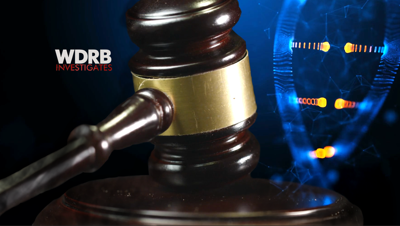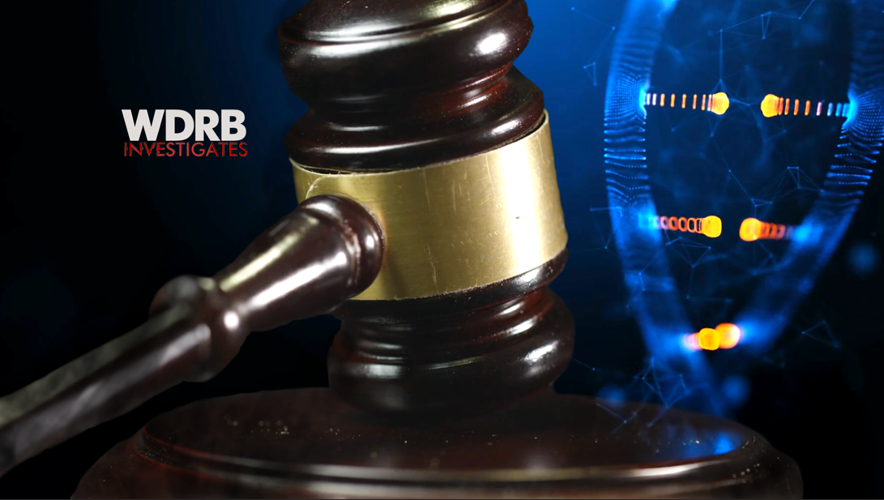LOUISVILLE, Ky. (WDRB) – A local judge has called the handling of evidence in a murder case by Louisville police and its private crime lab "baffling" and "shocking," criticizing the current testing process and pressing for changes to be made.
Louisville Metro Police is one of a few departments in the state now using a private Florida DNA laboratory, DNA Labs International or DLI, for testing evidence from murders, violent crimes and sex crimes instead of the severely backlogged Kentucky State Police Forensic Laboratory.
Getting evidence tested at the KSP lab can take years while the standard turnaround for results from the Florida lab is six to eight weeks. The department, which pays the lab about $2.3 million a year, can get results even quicker, if it pays more.
But while the faster turnaround in evidence has been a huge benefit, some issues with the Florida lab have raised questions, confusion and problems for defense attorneys, prosecutors and judges.
In fact, Jefferson Circuit Court Judge Sarah Clay threatened to hold the lab in contempt for failing to follow her orders and allow an expert for the defense to oversee testing of evidence in the Frederick Matthews murder case.
"Literally everyone that was subject to this court order was willfully ignorant of it," Clay said on March 18, after police and lab officials acknowledged the error in testimony. "I find it shocking that so many people would receive an order … and not read it."
In Kentucky, the defense has the right to oversee the testing of evidence, which Clay ordered in the Matthews case, but testimony in recent weeks showed LMPD and six people at the lab failed to read her order and never contacted Matthews' attorney or the prosecution.
"I find it truly troubling," Clay said.
It is unclear what will happen with Matthews' case, although prosecutors have volunteered to move forward without the evidence tested by the lab.
"I do believe that there's a degree of potential arrogance or, ignorance or I don't even know what the term is and not necessarily, the, the LMPD at this point, but at the staff or at the laboratory level itself," said attorney Mark Hall, who is representing Matthews. "They're ignoring an order. They didn't read the order."
Other defense attorneys have complained about the same issue in recent months while prosecutors have told judges they have been unable to contact the lab directly, instead having to go through police.
Clay declined to hold anyone in contempt, ruling that the lab did not intentionally violate her order.
"Although DLI violated the Order by failing to make any effort to coordinate with the defense Expert in conducting testing, the violation was not willful because no one at DLI, or LMPD for that matter, read the entirety of the four-sentence Order," Clay wrote in her March 20 ruling. "The Court therefore finds DLI's ignorance of the Order negligent rather than willful."
Still, she said, that excuse will not be accepted again, in her courtroom or others in Louisville.
"The Court will not be so gracious if similar issues arise again," Clay said in her order.
"They are certainly on notice now, if they weren't before," Clay said of the lab during the hearing. "I truly find this baffling."
Some of the problems exposed during the contempt hearing testimony include:
• The Florida lab "overlooked" the order that the defense should be allowed to oversee the DNA testing in the Matthews case, according to DLI International's quality insurance manager, Marybeth Sciaretta.
"It was a complete oversight on our laboratory's end … It was not intentional," she testified in February.
• A subsequent investigation by the lab found a half dozen other similar cases where the lab did not notice orders for the defense to be present for testing, but the issues were worked out and haven't hurt the prosecution of any other cases.
"Last week I was brought in to investigate it and … implement processes to ensure that this is not to happen again," Sciaretta testified on Feb. 27. "Meetings have occurred company wide to ensure all personnel are aware of our steps moving forward."
• At least some prosecutors have not been able to have direct contact with the lab, deferring to police.
This has led to instances where the prosecution and defense have not been able to ensure the testing is done in accordance with court orders.
"In the future the commonwealth will have direct contact with the lab," Assistant Commonwealth's Attorney Virginia Call told Clay.
• The LMPD liaison with the lab acknowledged that he does not fully read the court orders, except to determine what items are being tested, Sgt. Matthew Kennington testified in late March.
Judge Clay: "Whose job is it to make sure the order is being read fully by someone at LMPD?
Kennington: "I don't think anybody at LMPD … I guess it would be, I don't want to lie. I don't know who it would fall under. I'm sorry."
A spokesman for Louisville police said in a statement that, "Everyone to whom the court order pertains should review the court's order. This includes the police, the prosecution and the lab. Steps have been taken to ensure that LMPD is reviewing the court orders before sending them to the lab."
To be clear, court officials and police point out that the quicker results for DNA testing has helped resolve cases quicker, reducing the backlog of pending cases and lessening the time victims and defendants must wait for justice.
The mistakes have occurred in only a small minority of the total cases, and for the most part caused limited damage.
"We're all learning about how to deal with DNA Labs International," Assistant Commonwealth's Attorney Layla Lutfi said in a different case where there have been similar problems. "This is part of the growing pains."
As for Matthews' case, the prosecution offered to go to trial without the DNA, to have it tested again at the department's expense with a defense expert present or provide the evidence to the defense to have tested themselves.
Hall, Matthews' attorney, told Judge Clay the DNA may have evidence proving his client wasn't involved so "unfortunately we can't really do anything until that testing is completed."
A request by Hall to release Matthews on home incarceration was denied.
Matthews has pleaded not guilty to beating another man to death in Louisville's Saint Denis neighborhood in 2023. He is charged with murder and burglary.
The fatal assault happened March 16 on Oboe Drive near Shanks Lane and Cane Run Road.
The Louisville Metro Police Department said Matthews hit 63-year-old George Sledd in the head with an unknown object several times.
Court records said Sledd suffered a heart attack during the assault, broken ribs and head injuries. He died at the hospital.
Police said a witness identified Matthews as the man who "forcibly entered the house and assaulted the victim in the living room."
Copyright 2025 WDRB Media. All Rights Reserved.














